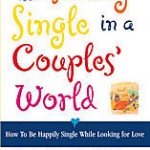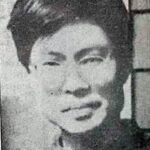 By Jae-Ha Kim
By Jae-Ha Kim
Chicago Sun-Times
May 7, 2001
Admit it. You’ve fantasized about winning the lottery and what you would do with all that loot. You’d buy homes for your kids, hire a full-time chauffeur for your grandmother, donate to the United Negro College Fund, sail around the world on the QE2, and lose 25 pounds at the Canyon Ranch Spa. You’d be ecstatic 24/7. You’d be dead wrong.
Money will not make you happy.
What you should think about is how to capitalize on the qualities that make you happy. Qualities like independence, belonging, self-respect, security and enjoyment.
“Money is a huge part of our culture, and we think it distracts people from what’s really important,” says Kennon Sheldon, a University of Missouri researcher who studied this issue for 10 years, and recently published his results in the Journal of Personality and Social Psychology.
“We consistently found that people who strongly care about money, attractiveness and other extrinsic goals don’t look or act as happy as people who don’t care about them so much.”
Even when people get some money, they’re not as happy as people who have attained happiness through “intrinsic goals” such as intimacy, personal growth and feeling like they’ve contributed to their community, Sheldon says.
“This one participant said the single most satisfying event he participated in was cleaning up a summer camp with a group of people during a church retreat,” Sheldon says. “Being part of the group gave these people a sense of connectedness, a feeling of doing something of their own free choice and making a contribution all at the same time. That seems to make people really happy to do that.”
Now before you succumb to that great suffocating feeling that comes from being stuck–in a job, a bad relationship–there’s plenty we can do to boost our contentment levels aside from pinning our hopes on a lottery ticket. Share, Sheldon says. The more you give, the better you’ll feel.
If you had a choice of the following qualities to enhance your life, which would you choose?
Autonomy/independence: You are the cause of your own actions.
Competence: You are capable.
Relatedness/belonging: You have regular intimate contact with people who care about you.
Self-actualization/meaning: You are developing your best potential and making life meaningful.
Security/control: You feel safe and in control of your life.
Money/luxury: You have plenty of money to buy most of what you want.
Influence/popularity: You are liked, respected and have influence over others; people care about your opinions.
Physical well-being: You are healthy and well-taken care of.
Self-esteem/self-respect: You are a worthy person.
Pleasure/stimulation: You get plenty of enjoyment and pleasure.
*****
Following are some Chicago-area residents who’ve had to to make these very decisions.
Independence vs. Money
Cari Stables, 41, Western Springs
Who in their right mind would give up influence and money in exchange for a life of keeping tabs on the checkbook and taking weekend getaways to downtown Chicago instead of full-blown vacations?
That was the choice Cari Stables faced two years ago as she stood on top of the world. As a bank vice president, she worked with wealthy clients. Her days were filled with important meetings and intense number-crunching sessions to manage millions of dollars.
She even had a nanny–a good one, who was wonderful with her boys.
And while Stables and her husband had always worked hard, it dawned on her that the effort was hardly working for her family. They had a decision to make, so Stables did the obvious: She worked the numbers. It all added up: If they pared down, stopped going out to eat so much and took mini-vacations, they could live comfortably, but not at the same standard of living they currently had.
Her choice? Stables chose her family, and she’s not looking back.
“It’s a decision some people might not think is prudent,” Stables says. “But for me and my family, it was the right thing to do at the right time. I’m very happy with my decision and never regretted it.
“(My sister) said that it was best to work when the kids are younger because when they’re older, they need more mentoring and direction. I want to be there with them while they still want me hanging around.”
While Stables acknowledges that many parents work out of necessity, she suspects a lot more parents support a higher lifestyle than necessary, in terms of raising healthy, well-adjusted kids.
“When the children are older, I would like to go back to work,” she says. “My son once said, `Why don’t you and daddy switch now?’ If my husband and I could switch places occasionally, that would be ideal. But it’s not so easy to step in and out of our roles. For now, I’ve chosen to be a stay-at home mom. That’s my job. It’s different, but it’s so rewarding on so many different levels. You cannot imagine how great I feel when I see my boys’ little faces when they come home for lunch.”
Money, Self-actualization, Stimulation, Influence vs. Security, Competence, Well-being, Relatedness
Alan Kozlowski, 38, South Loop
It was a light-bulb moment for Alan Kozlowski that fall day in 1989 as he clutched the Wall Street Journal. `
“There was this flash of good news,” Kozlowski recalls. Ph.Ds would be in heavy demand by the mid-’90s, and every man and woman holding a humanities doctorate would be pressed into service.
That was the day Kozlowski dedicated himself completing that doctorate, and by age 30, be installed in a tenure-track position in a stimulating academic environment of his choosing, and have access to the influence, popularity and security that went along with being a well-respected academic.
Only it didn’t happen that way.
“It seems like the choice was made for me because there was no place for me in academia,” says Kozlowski, who has taught at Central Michigan University, the Illinois Institute of Technology and Loyola University.
The downtown law-firm word processor knows oh so well what it’s like to live from paycheck to paycheck, and he didn’t want to prolong the pain of scraping up change for the CTA and scoping out the best places for cheap pitchers of cold beer.
During that 10-year period Kozlowski was in school, he also worked nights for two years at a law firm, then two years on days doing heavy-duty clerical work like shipping hefty documents to 20 or more clients. And that was the job that’s been his bread-and-butter since he graduated.
Good bread, too. He and his partner John Schuchert have been able to buy a townhouse in the burgeoning South Loop neighborhood. He can go out to his favorite restaurants without worrying what he’ll have to give up later.
“It’s nice to have a place of one’s own, paint the walls any color you want to. I have a car now,” he says. “It’s nice to be able to go to a play at the Goodman or Steppenwolf; it’s just nice to be able to do that and not worry about the after effects, without having to ask `What am I going to give up in the future because of what I have done?’ ”
So what about his dreams of teaching?
“This is the last year I’m going to be on the market for academic jobs,” says Kozlowski, who will accept a position this week at an investment bank as a junior associate to one of the lawyers he’s worked for. “I need to do something because my current job isn’t very stimulating.”
This will be Kozlowski’s first salaried position in ages. The job has been structured with the expectation that he’ll advance and make even more money with time.
“I always joke that I’m hopelessly middle class.”
Pleasure/stimulation/Self-esteem/Meaning vs. Money, Influence, Security
Ben Kim, 37, Logan Square
Like the product of many immigrant families, Korean-American Ben Kim felt a subtle pressure to pursue higher education and enter a field that would give him power, money and influence, qualities that could reflect well on the Korean people. So while his parents didn’t apply any direct pressure, Kim got the message and pursued an MBA degree, taking his place among the corporate drones as a mid-level human resources employee.
Everything about the experience was so wrong for Kim. He says he hated the morning suburb-to-city cow herd-like commute, the stuffy, expensive suits and the 7 a.m. meetings. But the money was good, and the status didn’t hurt.
“The longer I was there, the less I wanted to be there,” Kim says. “It sounds like a cliche, but I decided to make a change with my life because I was really unhappy working at my job.”
How would Kim survive without m-o-n-e-y? What could he do that would make him, happier and more satisfied?
“I was scared at first that I wouldn’t make enough money to survive,” says Kim, who became a free-lance writer, which introduced him to a whole new world of fellow artsy types: musicians, filmmakers and artists. “The funny thing is money just goes through my hands no matter how much I have. So I seem to be living almost as well now as I was back then.”
Intuitively, Kim fell into a career that gave him the creative opportunities and contentment he yearned for as founder of the Foundation for Asian American Independent Media and organizers of the Chicago Asian American Showcase.
“I know I would never have had the time to undertake a project like that if I was still stuck in the corporate world. And that’s how I felt at my old job–stuck.”
Now if Kim can just get off his butt (his words, not ours), he can reach his next goal of getting more grants for more Asian-American film showcases.
“I really do enjoy what I do, and I have no regrets about any decisions I made. I’m more relieved that I finally found what I really wanted to do and then just did it. I still worry about my future, and that’s probably what drove me into the corporate world in the first place. But you have to worry about your present, too. You can’t put a price on having fun doing what you do. And I have fun over here.”
Competence/Self-actualization vs. Money/Influence/Security
Tamara Allen, 42, Kankakee
Tamara Allen knew how devastating a loss of income could be. As a successful businesswoman who designed kitchens and bathrooms, she had experienced the exhilaration of building a business from nothing to grossing more than $1 million in sales.
Then, three years ago, she fell ill. Plagued by unexplained fatigue and memory loss, Allen thought she might have Alzheimer’s disease. She could no longer work, and she worried how her blended family, which included 10 children (her kids, step-kids and her sister’s kids), could survive on one income.
Instead of wallowing, Allen took charge. First she found out her condition had a name: fibromyalgia. She educated herself about it, adopted a healthy diet and used supplements to help her recover.
“It didn’t happen overnight,” Allen says. “It took several months before there was any positive effect, but I definitely began feeling better.”
Back on her feet, Allen was presented with a new opportunity to grab the cash purse. Would she take it?
Allen talked to her husband about this chance to take a lucrative kitchen design job. She knew she could now physically handle the work, and her family desperately needed the money. Just one thing: Allen didn’t have her old zest for the job.
“To allow me to follow my dreams, (my husband) took on two other jobs to supplement his primary income,” says Allen, who passed up the opportunity feel like her old self. “I feel blessed to have a man like this in my life. But I think that we’ve always had a vision that the money will be there.”
Today, Allen is a part of the Midwest Wellness Forum that educates health-care professionals and others about the alternative treatment methods she learned about during her recovery. She earns about a quarter what what she used to, but her passion is back 100 percent.
“Money aside, there are benefits to my new job,” Allen says. “My hours are wonderful. I still work a lot of hours, but now I adjust it around the kids’ schedules. My illness turned out to be a blessing in disguise.”





